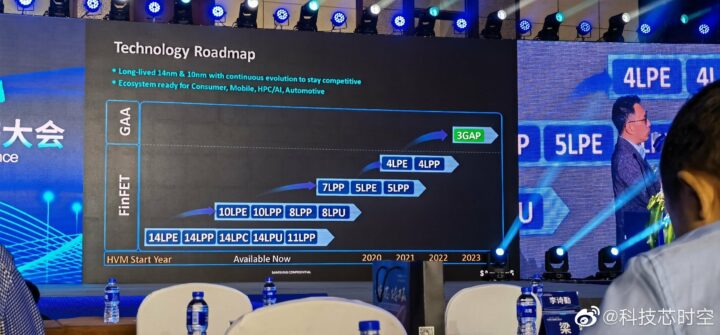SamMobile has affiliate and sponsored partnerships. If you purchase something through one of these links, we may earn a commission.
Last update: April 18, 2022 at 15:37 UTC+02:00
Samsung Foundries is set to face another setback after losing Qualcomm’s business to TSMC. A report of Businesspost.kr says mass production of its 3nm process node may be delayed due to below-average yields. It is the first in the industry to use a GAAFET (Gate all around FET), instead of the traditional FINFET (Fin FET) design.
Market research firm IC Nolridge says Samsung will initially use its 3nm node for internal use, presumably the successor to Exynos 2200 (Exynos 2300). Samsung’s initial roadmap indicated that 3nm mass production would start in 2022, but that seems unlikely at this point. The firm added:
Samsung Electronics still seems to solve the technical problems of the newly introduced GAA (gate-all-around) process from 3 nanometers and the introduction of new technologies ahead of competitors leads to lower yields and delays in mass production .
Once perfected, however, Samsung’s 3nm process has the potential to take computing to a whole new level. It can contain 1.6 times more transistors than previous generation nodes and run 35% faster while consuming 50% less power. Once the yield issue is ironed out, it should, on paper, be able to make TSMC run for its money.
However, Samsung didn’t have long before TSMC caught up with GAAFET transistors. TSMC’s 2nm node will use a GAAFET design, and it is expected to enter mass production by 2025. Intel Foundries, on the other hand, plans to start its 20A (2nm) node by 2024.
Previous reports said that Samsung would manufacture 3nm parts for AMD, Qualcomm and a few others. However, Qualcomm is unlikely to return anytime soon after the Snapdragon 8 Gen 1 debacle. Even AMD has switched to TSMC for its Milan-X server processors.
Join the SamMobile Telegram group and subscribe to our Youtube channel to get instant updates and in-depth reviews of Samsung devices. You can also subscribe to receive updates from us at Google News and follow us on Twitter.






More Stories
Delay in mass production of new Intel products is a boon for AMD, share of AMD x86 server processors expected to exceed 22% in 2023, according to TrendForce
Quantum industry milestone brings mass production of quantum chips closer
NEO Battery Materials provides updates on installation of additional equipment for mass production optimization and final stages of commercial plant design for construction